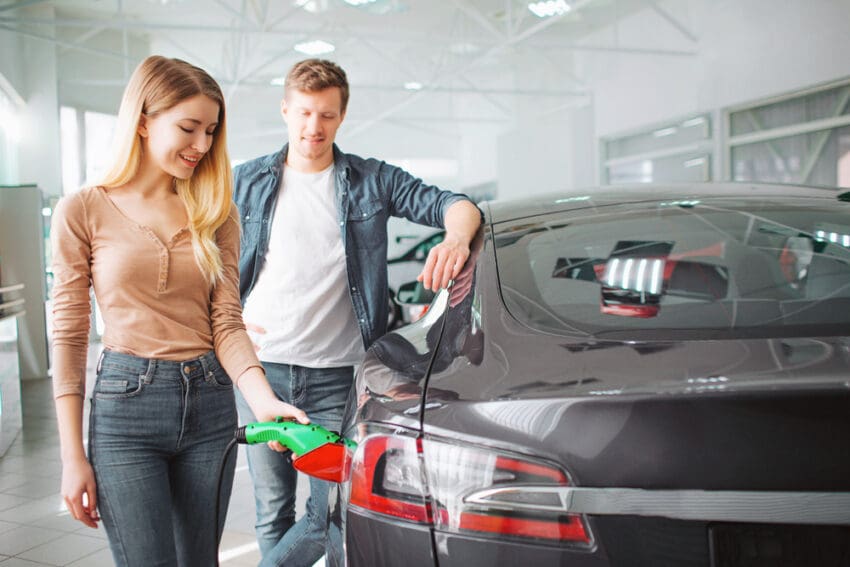Used electric car sales jump 311% in record-breaking year
Sales of secondhand electric cars have tripled in the last year, with used EVs selling faster than their petrol or diesel equivalents, according to a leading used car seller.
Retailer Cinch, which claims to be the biggest seller of used EVs, reported a 311% year-on-year increase in transactions in the third quarter of 2024.
The latest data from Cinch shows that sales have soared as the price gap between used electric and ICE cars has narrowed. It also shows that in the year between October 2023 and September 2024, EVs sold 26% faster than petrol or diesel cars.
Separate data from Auto Trader echoes these findings. Its November retail price index shows that the average time to sell is 31 days across all fuel types, with EVs taking 28 days on average, and three-to-five-year-old EVs selling within 22 days on average.
Among the best-selling used EVs on Cinch are early mainstream options such as the Nissan Leaf and Renault Zoe, alongside the market-leading Tesla Model 3.
Sam Sheehan, motoring editor at Cinch said that multiple factors including improved value, range and charging support, were helping power the surge in used EV interest. He commented: “With the maturity of the EV market, it’s now possible to pick up a more affordable used, low mileage, battery-powered car. Gone are the days when there was a huge price differential between EVs and their equivalent petrol and diesel models.
“Public charging is improving, EV range is improving and the choice of cars is growing. There’s never been a better time to go green.”
While there is still often a price difference between new EVs and petrol equivalents, Cinch’s findings show the gap in the used market is narrowing all the time.
Between July and September 2022, used EVs on Cinch’s website sold for an average price of £25,078. Petrol and diesel cars sold for an average of £14,419 – a difference of just over £10,000.
In the same period in 2023, the average price of an EV was £19,440, and the average price of a petrol/diesel car was £14,619 – a difference of just under £5,000.
In 2024, the difference between the price of an EV and a petrol/diesel car had narrowed to just over £1,000 – £16,075 for EV compared with £14,794 for petrol or diesel. And in some cases, the electric equivalent is cheaper than the petrol option.
According to Cinch figures, the average sold price of a used electric Vauxhall Corsa Electric, up to three years old and with less than 30,000 miles on the clock, was £12,701 between July and September 2024. Comparable ICE Corsas sold for an average of £13,005 over the same period, meaning electric was cheaper to buy, as well as being cheaper to run.
Sheehan added: “While new EVs still command a small premium versus similar petrol and diesel models due to their construction costs, this gap is narrowing all the time on the used car market.
“And, if you look at the overall cost of ownership of an EV versus a traditionally-fuelled car, it makes a lot of sense to choose electric these days. Our data highlights that EV owners who charge their car at home can save £1,040 per year on running costs compared to petrol cars.”
Abhishek Sampat, cinch’s head of electric vehicles, said 2025 would be another big year for drivers making the switch thanks to the increase in long-range models and the growth of the public charging network.
He added: “We’re also seeing EV battery grading being introduced by used car retailers, giving buyers an independently-verified report of a used EV’s battery health and longevity. This should give consumers more confidence that the EV they’re buying will stand the test of time.”
